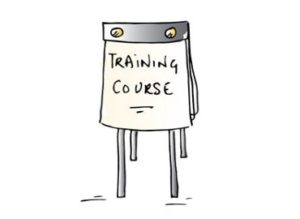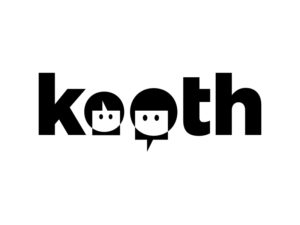Emotional wellbeing advice, guidance and support for highly anxious pupils
This resource was created by a working party from the Specialist Teaching and Learning Service, Kent Educational Psychology Service and partner agencies within Kent.
Introduction
Emotionally Based School Avoidance (EBSA) is not a new phenomenon. Children and young people miss school for a variety of reasons; a voluntary or involuntary response to personal, family, school or wider environmental factors.
EBSA is a pattern of absence whereby reluctance, or refusal, to attend or stay in an educational setting has its base in anxiety or fear. Risk factors vary and it is important to understand the reasons for poor/non-attendance.
This resource does not provide detailed information about EBSA. However, some of the information and advice obviously draws on that area of study. EBSA, due to anxiety, is likely to be an area of concern to schools.
This google drive resource and it subfolders aims to provide some initial guidance to supporting highly anxious pupils.
Kent Educational Psychology Service also offer advice and training to support you. Learn more about the EBSA pathway or visit Kent Educational Psychology Service – KELSI
How to support highly anxious pupils
Introduction – a brief guide to anxiety
Tools for managing anxiety
Tools to ‘measure’ anxiety and create a back-to-school plan
Resources for interventions
Whole school good practice
Recommended reading:
7 ways to support children and young people who are worried (Anna Freud Centre)
Guidance for different settings to support anxious pupils
|
For children who are highly anxious or were refusing to attend school, it is likely to be a huge challenge for both you as parents, and the staff in their school, to settle them back successfully after recent events. Helping parents to support anxious children to return to school |
The following guidance offers suggestions on how to support an anxious pupil with successfully transitioning back into school. |
The following guidance offers suggestions on how to support an anxious pupil with successfully transitioning back into school. |
Social Emotional and Mental Health (SEMH) needs
Research has identified four key principles for supporting all children and young people to manage the transition back to education. These will be particularly relevant when considering supporting pupils with SEMH needs.
Key considerations for supporting children and young people with Social Emotional and Mental Health needs (SEMH) to reintegrate back to educational settings.
Create a sense of safety
It is important that all adults, children and young people feel safe in their education setting, especially those with SEMH needs. This can be supported by:
- Acknowledge that parents may be feeling (understandably anxious) about integration. Hence, it is important to communicate regularly with all parents (providing clear information e.g. around risk assessments). Consider vulnerable parents who may need more personalised/intensive support.
- Supporting the transition to existing or new education settings is fundamental, particularly for children and young people with SEMH needs (who may require more intensive support). Ideally this should begin prior to the transition, for example, through meeting virtually with parents/carers to explore the child/young person’s experience of lockdown and helpful resources/strategies (e.g. considering transition objects). It may be helpful to offer children/young people resources to familiarise them with the setting (e.g. virtual tours, pictures of key staff etc). For some, opportunities to re-connect with trusted staff members will be helpful.

- In order to support children and young people’s emotional wellbeing, the environment should provide nurture and structure. Where possible, continue with routine activities or use visual support (e.g. Social Stories and visual timetables to communicate changes/new routines/expectations).
- Staff should provide clear information to children and young people about the strategies that they will implement. This should include explicit information about physical safety and how they can access pastoral support in their education setting.
- It may be helpful to support children and young people’s understanding of things that are happening around them (e.g. to challenge any misinterpretations). Resources such as Social Stories are likely to be helpful). Provide opportunities for asking questions about these (e.g. through check-ins with a trusted adult or opportunities to write down/draw any thoughts or questions they have). In Early Years settings, these opportunities are likely to come about when you are engaging with the children in play or at story time. Be honest with them but keep your language simple and matter of fact (reinforced through visuals).
Support emotional literacy
 Upon returning to education following a break, children and young people are likely to experience a range of emotions. It is important that these are normalised, and they are given support to help them manage their emotions and return to a state of calm. This can be supported using the following strategies:
Upon returning to education following a break, children and young people are likely to experience a range of emotions. It is important that these are normalised, and they are given support to help them manage their emotions and return to a state of calm. This can be supported using the following strategies:
- It is important that staff (particularly those working with pupils with SEMH needs) recognise the link between emotion and behaviour. Staff should provide opportunities to reflect on this with others (e.g. using functional behavioural approaches such as ABC charts or the STAR approach) and ensure there are support systems in place for staff.
- Staff should model emotional regulation and staying calm through providing opportunities for co-regulation (e.g. whole class/group mindfulness or yoga exercises).
- Make use of emotion regulation strategies in the classroom or nursery setting for all children/young people (e.g. feelings boards, calm corners, relaxation resources, ‘happiness boxes’). Some children may require more intensive support (e.g. using resources such as the zones of regulation or the Incredible 5-point scale (by Buron and Curtis) and through access to individual or small group emotional literacy intervention. Such intervention should be implemented using an assess-plan-do-review approach, overseen by a qualified teacher/SENCo. If there are wider professionals involved it may be helpful to liaise with them (if deemed appropriate by the SENCo).
- Staff should model emotional regulation and staying calm through providing opportunities for co-regulation (e.g. whole class/group mindfulness or yoga exercises).

- Make use of emotion regulation strategies in the classroom or nursery setting for all children/young people (e.g. feelings boards, calm corners, relaxation resources, ‘happiness boxes’). Some children may require more intensive support (e.g. using resources such as the zones of regulation or the Incredible 5-point scale (by Buron and Curtis) and through access to individual or small group emotional literacy intervention. Such intervention should be implemented using an assess-plan-do-review approach, overseen by a qualified teacher/SENCo. If there are wider professionals involved it may be helpful to liaise with them (if deemed appropriate by the SENCo).
Promote a sense of self-efficacy
 Children and young people need to feel they have some control over what is happening to them, and a belief that their actions are likely to lead to generally positive outcomes (Bandura, 1997). This can be supported in the following ways:
Children and young people need to feel they have some control over what is happening to them, and a belief that their actions are likely to lead to generally positive outcomes (Bandura, 1997). This can be supported in the following ways:
- Consider ways to seek children/young people’s views about strategies that they would find helpful to support their reintegration (e.g. through circle time activities, suggestion boxes, sessions with a key adult for more vulnerable pupils).Ensure a consistent approach is used in the nursery setting.
- Build strengths and capacity – explore children/young people’s strengths and aspirations. Provide opportunities to experience success and to use their strengths.
- Teach children and young people problem solving skills (at a developmentally appropriate level) and help them to recall times when they have coped with change in the past.
- Support children/young people to develop self-regulation strategies (at a developmentally appropriate level) so that they feel in control of their emotions (see above).
Promote hope
 Whilst things may feel difficult, it is important that adults, children and young people feel things will get better and work out in future. Children and young people need to be provided with reassurance and understand that in the long term they will feel positive again.
Whilst things may feel difficult, it is important that adults, children and young people feel things will get better and work out in future. Children and young people need to be provided with reassurance and understand that in the long term they will feel positive again.
- Creating a sense of support for staff in the education setting is key. Work together as a team and agree on how you will answer key questions and concerns.
- Adults to model optimism and kindness. It is important to remember to be kind to yourself too.
- Support children and young people to notice acts of courage and kindness (e.g. using developmentally appropriate activities such as gratitude diaries or gratitude jars or just a simple ‘you were kind’ sticker for younger pupils).
Staff training
 Integration Resources: here are resources for integration based on the 4 key principles above. This is in the form of two PowerPoints, one for Early Years/KS1 and another for Year 6/KS3/KS4. These resources can be used for SEMH first aid training for staff.
Integration Resources: here are resources for integration based on the 4 key principles above. This is in the form of two PowerPoints, one for Early Years/KS1 and another for Year 6/KS3/KS4. These resources can be used for SEMH first aid training for staff.
- Training for staff around attachment theory by Andy Young (Specialist teacher for SEMH)
- Training for staff around emotional intelligence by Andy Young (Specialist teacher for SEMH)
- Further information around implementing a Recovery Curriculum in Early Years settings.
Useful websites and resources
- Young Minds website.
- Schools in Mind resources via the Anna Freud Centre.
- Beacon House website (particularly useful for supporting children and young people who have experienced trauma).
 Kooth.com offer web-based confidential support and counselling for young people aged 10 – 16 years around supporting mental health and emotional wellbeing
Kooth.com offer web-based confidential support and counselling for young people aged 10 – 16 years around supporting mental health and emotional wellbeing- Free resources to support emotional wellbeing from MINDUP.
- Childline.org.uk – calm zone.
- Books Beyond Words – wordless stories.
Useful links and apps
NHS – Every Mind Matters – having good mental health helps us relax more, achieve more and enjoy our lives more. We have expert advice and practical tips to help you look after your mental health and wellbeing.
Big White Wall – a community of members who support, help each other and share what’s troubling them in a safe and anonymous environment. (Aged 16-25).
Mind.org.uk – provides advice, support and information on an extensive set of topics from sleep problems to suicidal thoughts.
Safe Hands Thinking Minds– Dr Karen Treisman is a Highly Specialised Clinical Psychologist focusing on dealing with trauma and stress through new and useful information, including videos.